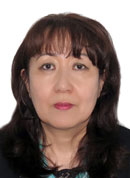It has long been noted that lifetime portraits of a person look completely different after his death. This idea involuntarily comes to mind at the news of the death of the American politician and thinker Z. Brzezinski, who has exerted enormous influence on world politics and on world political science. The death of such a person is not a reason for disparaging assessments, political malevolence or score-settling [1]; this is a cause for taking a fresh look at this person and his intellectual heritage, and also for thinking about ourselves and the modern world.

Deng Xiaoping’s concept of modernization, including the idea of “independent and autonomous foreign policy” has been the core of Chinese foreign policy doctrine for a long time. The main goal is the rapid economic growth of China. The strategic principle of “taoguan yanhui” (to keep a cool head and maintain a low profile. Never take the lead – but aim to do something big.) announced by Deng Xiaoping in the early 1990s determined the foreign policy of the PRC during the period of reforms and openness.

On May 19, 2017, 12th presidential elections were held in Iran. Incumbent President H.Rouhani won with a wide-margin: he received 57% (23 549 616) of votes and was re-elected for a second term. Main contender to H.Rouhani, E. Raisi took the second place, gaining 38,5% of votes (15 786 449). The other two candidates significantly lost to the leaders, and could not overcome the threshold of 500 000 votes. M.Mir-Salim and M.Hashemitaba gained 1,2% and 0,5% of votes (478 215 and 215 450), respectively. Owing to the high voter turnout (73%), the authorities had to extend the voting time several times. About 56 million people had the right to vote at the elections [1].

Most of the European Union member countries are members of NATO, thus, they are involved in the implementation of the cyber strategy of the North Atlantic bloc. At the same time, the European Union and its member countries are developing their own cyber strategy.

D.Trump’s withdrawal from the TPP predetermined thorough review of regional integration architecture and China’s role in the regional processes. Will China take the lead in the integration process within the framework of the TPP or actively promote negotiations aimed at establishing the RCEP?
